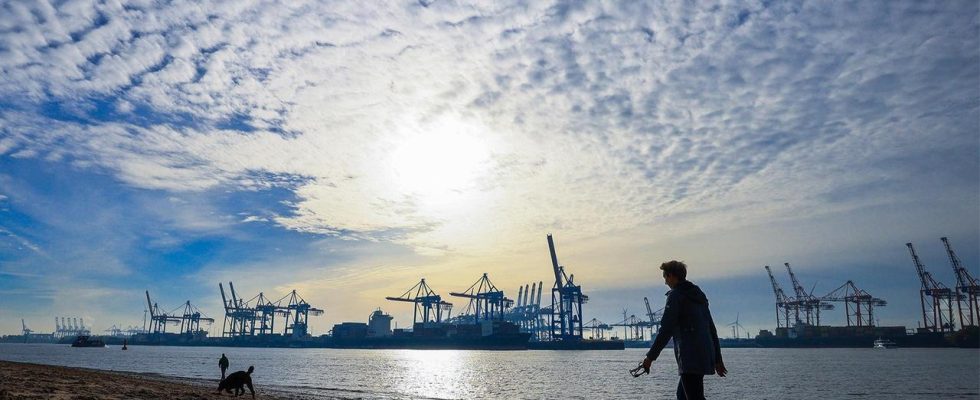The mood in the German economy continued to improve in April and is better than it has been for almost a year. This means that the economy could have overcome its low point – mainly thanks to consumers.
The mood in the German economy brightened again in April and is better than it has been since May 2023. The ifo business climate climbed by 1.5 points to 89.4 points compared to the previous month, as the Munich ifo Institute announced today. It is the third increase in the important economic barometer in a row. After such a series, economists often speak of an economic turnaround for the better.
In addition, market expectations were exceeded. Analysts on average had only expected an increase to 88.8 points. The approximately 9,000 companies surveyed rated both the prospects for their future business and the current situation better than in the previous month.
“Phase falling Economic forecasts should be over”
“The economy is stabilizing, especially thanks to service providers,” said ifo President Clemens Fuest. But the index also rose in all other economic sectors examined, which is particularly due to the less pessimistic expectations. According to the report, the current situation only improved in the service sector. Companies in the manufacturing, construction and retail sectors were less satisfied.
And yet: “With the third increase in a row, the ifo business climate is now sending out a very clear upward signal,” emphasized Commerzbank chief economist Jörg Krämer. Now that companies have gotten used to the higher key interest rates and energy costs are falling again, the economy can now grow again. “The phase of falling economic forecasts is likely to be over.”
“The third increase in a row and the second strong plus in a row. This looks like a trend reversal,” commented Jens-Oliver Niklasch from LBBW. In difficult times one must remain cautious, but at least there is now evidence to suggest that the economic downturn has been overcome. “If the ECB also starts cutting interest rates from the middle of the year, then there should be enough for the German economy to see a small increase in GDP this year.”
Federal Government provides Economic forecast before
Alexander Krüger, chief economist at Hauck Aufhäuser Lamp Privatbank, remains skeptical: “The lamp goes on in the deep shaft. However, the assessment of the situation leaves no room for economic optimism.” The majority of the improved mood is due to the fast-moving expectations. The business climate therefore does not change the fundamental view of the economy. “Structural problems continue to exist, impulses come primarily from the global economy,” said the expert.
The economy is currently in an economic trough due to falling investment and a lull in construction and shrank by 0.3 percent at the end of 2023. However, according to the Bundesbank, gross domestic product is likely to have “increased slightly” in the first quarter of 2024. This would save Germany from a recession. “The economy in Germany has brightened somewhat, but a thorough recovery is not yet assured,” the Bundesbank recently said.
However, other leading indicators have also recently surprised positively. A survey of purchasing managers that received much attention on the financial market showed that the economy could slowly put its long dry spell behind it. Federal Economics Minister Robert Habeck will present the government’s new economic forecast in the afternoon. As Reuters reported, the estimate for GDP growth in 2024 is expected to be increased from 0.2 to 0.3 percent.
consumers and consumers are becoming more willing to buy
The reason for the economic improvement is obviously consumers. Things are looking up, particularly for consumer-related service providers and retail, said ifo survey director Klaus Wohlrabe. “Consumers seem to be becoming a little more willing to spend.”
According to Wohlrabe, real wage increases played a particular role. Inflation has recently fallen significantly, while significant wage increases have been agreed in many sectors. This supports purchasing power. However, the weakening industry stands in the way of a strong upswing.
“The industry is still struggling with a lack of orders,” said Wohlrabe. Foreign demand for goods “Made in Germany” is not yet increasing sustainably. “Industry’s export expectations have even fallen slightly; there is little momentum at the moment,” said the ifo expert. The construction industry is still a problem child. “The lack of orders remains a central problem here.”

